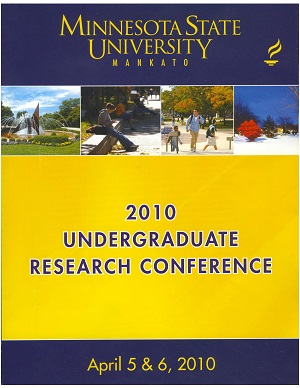Assessing Activation in Memory for Positive and Negative Stereotypes
Location
CSU 201
Start Date
5-4-2010 10:00 AM
End Date
5-4-2010 12:00 PM
Student's Major
Psychology
Student's College
Social and Behavioral Sciences
Mentor's Name
Karla Lassonde
Mentor's Department
Psychology
Mentor's College
Social and Behavioral Sciences
Description
Stereotypical knowledge is typically thought to represent negative characteristics of a group. However, researchers have identified that stereotypes can be both positive and negative (e.g., Maratos, 2001; Shih, Pittinsky, & Ambady, 1999). Studies have shown that negative stereotypes, compared to positive stereotypes, can evoke levels of bias and emotion (e.g., Maratos, 2001). As a result, the processing and embeddedness of positive and negative stereotypical knowledge in memory may differ. In the current study a reading task, which has been validated to measure activation of stereotypical knowledge (Lassonde, 2008), was used to determine whether or not stereotype activation differs as a function of valence.
Fifty undergraduate psychology students at Minnesota State University read a series of 24 passages. The passages contained information about a character which was intended to activate either a positive or negative stereotype. This context was followed by a target sentence in which information was consistent with either the positive or negative stereotype, inconsistent with either the positive or negative stereotype, or neutral.
The time it took participants to read target sentences was recorded.
Faster reading times for target sentences containing information consistent with activated stereotypes, for both positive and negative characteristics, compared to reading times on target sentences that are either neutral or inconsistent would demonstrate that positive and negative stereotypes are equally accessible in memory. Differences in reading times on target sentences containing positive and negative stereotypes (e.g., reading times are either faster or slower) may indicate that stereotype accessibility differs as a function of valence.
Assessing Activation in Memory for Positive and Negative Stereotypes
CSU 201
Stereotypical knowledge is typically thought to represent negative characteristics of a group. However, researchers have identified that stereotypes can be both positive and negative (e.g., Maratos, 2001; Shih, Pittinsky, & Ambady, 1999). Studies have shown that negative stereotypes, compared to positive stereotypes, can evoke levels of bias and emotion (e.g., Maratos, 2001). As a result, the processing and embeddedness of positive and negative stereotypical knowledge in memory may differ. In the current study a reading task, which has been validated to measure activation of stereotypical knowledge (Lassonde, 2008), was used to determine whether or not stereotype activation differs as a function of valence.
Fifty undergraduate psychology students at Minnesota State University read a series of 24 passages. The passages contained information about a character which was intended to activate either a positive or negative stereotype. This context was followed by a target sentence in which information was consistent with either the positive or negative stereotype, inconsistent with either the positive or negative stereotype, or neutral.
The time it took participants to read target sentences was recorded.
Faster reading times for target sentences containing information consistent with activated stereotypes, for both positive and negative characteristics, compared to reading times on target sentences that are either neutral or inconsistent would demonstrate that positive and negative stereotypes are equally accessible in memory. Differences in reading times on target sentences containing positive and negative stereotypes (e.g., reading times are either faster or slower) may indicate that stereotype accessibility differs as a function of valence.
Recommended Citation
Scheierl, Amber. "Assessing Activation in Memory for Positive and Negative Stereotypes." Undergraduate Research Symposium, Mankato, MN, April 5, 2010.
https://cornerstone.lib.mnsu.edu/urs/2010/oral-session-02/1




